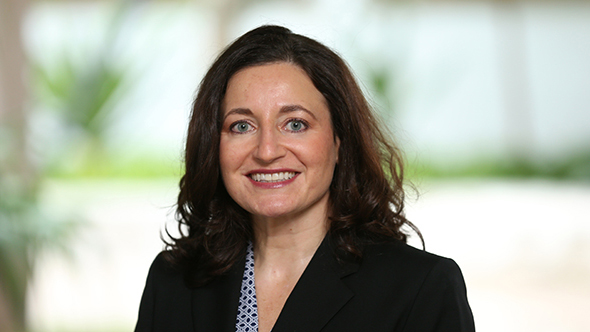The effects of COVID-19 have profoundly impacted virtually every aspect of business – and taxation is no exception. In the United States, the annual tax filing deadline has been extended, and a series of relief and stimulus measures were approved to soften the hit felt by American businesses and taxpayers.
Diana Falsetta, Associate Professor of Accounting and President of the American Taxation Association (ATA), is a respected thought leader in taxation for both practice and academia. Dr. Falsetta teaches taxation, financial accounting, and financial reporting of income taxes across undergraduate and graduate programs.
In this Q&A, Dr. Falsetta provides a glimpse into her role as ATA President, and offers her analysis on taxation in the era of COVID-19 and beyond.
What is the American Taxation Association?
We seek to promote and create tax knowledge – whether policy, compliance, or psychology behind taxpayer behavior. We also share that knowledge with policy makers, academics, students, and professionals.
How did you enter this leadership position?
ATA has a nomination process for its presidential leadership. You are nominated by your peer members of the association. This is a three-year role in which you serve as President-Elect, in the first year, as President in the second year, and finally as Past-President in the third year. Essentially, over the three years, you serve as chief executive of the association, alongside other officers to provide guidance and stability to the association.
What initiatives will you push?
One initiative is to help disseminate the work of the ATA to broader audiences, including policy makers, academics, and tax professionals. Our organization can do more to share with the greater community of those interested in tax.
What is your research focus in taxation?
My research focus has been on the judgment and decision making of taxpayers. What motivates them to cheat? Are there biases in how information is presented to taxpayers?
For example, there are different ways that government can roll out tax rate changes. Depending on the rate change and how it is executed, the level of investment activity may change, which will cause taxpayers to respond differently.
For businesses in the US, what do you foresee as short-term and long-term impacts of tax relief and stimulus measures?
The Coronavirus Aid, Relief, and Economic Security (CARES) Act provides immediate relief in the form of cash stimulus payments to individuals, as well as the ability of businesses to carryback losses in recent years to claim refunds of taxes paid in profitable years. Many of the stimulus measures were designed to provide access to cash to enable business to remain open and retain their employees. Some of the brick-and-mortar businesses used the time during the mandatory closures to remodel their spaces, which was an opportunity to make longer-term improvements without losing business to competitors, as all were forced to close/limit activity.
What opportunities can we expect in the post-COVID-19 future? What resources do you recommend to accounting students as they prepare for this emerging economic era?
Accounting students are fortunate in that, now more than ever, businesses need accounting and tax advice/planning. Recruiters continue to require students to develop substantial accounting and tax knowledge, as well as data analytics skills, to provide their clients with the advice necessary to maintain and build financially sound businesses that can sustain economic downturns. Students can prepare by staying on top of accounting/tax laws, whether learned in the classroom, or through many of the accounting firm education portals, which are aimed to keep both businesses and accounting/tax professionals abreast of current legislation.
Falsetta received her BS in accounting and finance from Florida State University, MPA in taxation from the University of Texas at Austin, and PhD from the University of South Carolina. She is a Certified Public Accountant. Prior to joining academia, she served as a senior tax specialist for KPMG LLP.
Founded in 1974, the ATA serves four primary objectives:
- To foster the dissemination and publication of taxation materials.
- To promote tax education in areas such as curricula, education-related materials, graduate tax programs, and accreditation.
- To promote tax research in areas such as policy, law, planning, compliance, and economics.
- To encourage the interaction of tax academics, practitioners, and professional organizations.

